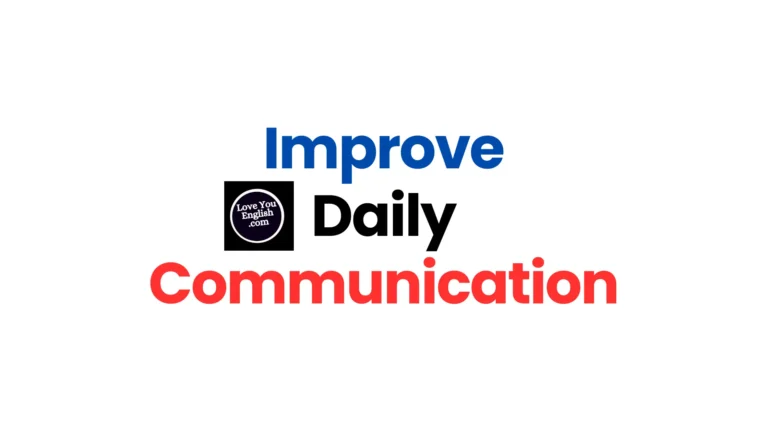Exit Interviews: A Complete Guide
Sharing is caring!
When an employee decides to leave a company, it’s not just a goodbye. It’s also a chance for the company to learn and grow.
This is where exit interviews come in. An exit interview is a talk between a leaving employee and someone from the company, usually from HR.
It’s a way to get honest feedback about the job, the workplace, and why the person is leaving.
In this post, we’ll dive deep into exit interviews, exploring what they are, why they matter, and how to do them right.
What is an Exit Interview?
An exit interview is a meeting with an employee who is leaving the company. It’s usually one of the last things an employee does before they go.
The main goal is to understand why the person is leaving and to get their thoughts on the company. It’s a chance for the employee to share their experiences, both good and bad.
During an exit interview, the company asks questions about different parts of the job. They might ask about the work itself, the team, the boss, and how the company runs things.
They also want to know what the employee liked and didn’t like about working there. This information can help the company make things better for other employees.
Why Are Exit Interviews Important?
Exit interviews are important for several reasons:
They help improve the workplace: By listening to leaving employees, companies can find out what’s working well and what needs to change.
They can stop more people from leaving: If many people leave for the same reason, the company can fix the problem and keep other employees happy.
They show the company cares: Even though the employee is leaving, asking for their opinion shows that the company values what they think.
They can give ideas for training: If employees say they’re leaving because they don’t have certain skills, the company can offer more training in those areas.
They help with planning: Understanding why people leave can help companies plan better for the future.
They might change the employee’s mind: Sometimes, talking things through in an exit interview might make the employee decide to stay.
When Should Exit Interviews Happen?
The timing of an exit interview is important. Most companies do them in the employee’s last week of work.
This is because:
- The employee has finished most of their work and can focus on the interview.
- They’re still connected to the company but are ready to be honest about their experiences.
- It’s late enough that the decision to leave is final, but not so late that the employee has mentally checked out.
Some companies do exit interviews a few weeks after the employee has left.
This can work too, as the person might have had time to think about their experience more clearly.
More professional topics:
- Top Interview Tips for International Remote Jobs
- Effective Strategies to Improve Your Communication Skills
- 20 Essential Soft Skills for Students
- How to Concentrate on Studies | 10 Useful Methods
- Interview Etiquette: Top 10 Rules to Follow
How to Prepare for an Exit Interview
Good preparation is key for a successful exit interview.
Here’s what both sides should do:
For the company:
- Choose the right person to do the interview. It should be someone the employee trusts and feels comfortable with.
- Plan the questions ahead of time. Think about what information would be most useful.
- Make sure there’s enough time for a good talk. Rush interviews don’t work well.
- Find a private, comfortable place for the interview.
- Review the employee’s file to remember their role and time at the company.
For the leaving employee:
- Think about your time at the company. What were the highs and lows?
- Be ready to give honest feedback, but in a professional way.
- Consider what advice you’d give to make things better for other employees.
- If you have any last questions about leaving (like about benefits), write them down.
Common Questions in Exit Interviews
While every exit interview is different, there are some common questions that often come up:
- Why are you leaving the company?
- What did you like most about your job?
- What did you like least about your job?
- How was your relationship with your manager?
- Did you have the tools and resources you needed to do your job well?
- How would you describe the company culture?
- Did you feel your work was appreciated?
- Were there any company policies that made your job harder?
- What skills or training do you think the company should provide more of?
- Would you recommend this company to others as a good place to work?
- Is there anything we could have done to keep you here?
- Do you have any other comments or suggestions for us?
These questions help the company understand the employee’s experience from different angles.
They cover the job itself, relationships at work, company culture, and areas for improvement.
Tips for Conducting Effective Exit Interviews
To get the most out of exit interviews, follow these tips:
Create a comfortable atmosphere: The employee should feel relaxed and able to speak freely.
Listen more than you talk: The goal is to hear the employee’s thoughts, not to defend the company.
Ask open-ended questions: These encourage fuller answers than yes-or-no questions.
Don’t argue or get defensive: Even if you disagree with what the employee says, just listen and take notes.
Keep it professional: Don’t gossip or talk badly about other employees or managers.
Be thankful: Show appreciation for the employee’s time and honest feedback.
Follow up on promises: If you say you’ll look into something the employee mentions, make sure you do.
Keep it confidential: The employee should trust that what they say won’t be shared with everyone.
Be consistent: Try to ask the same core questions in all exit interviews so you can spot patterns.
Stay neutral: Don’t show strong reactions to what the employee says, as this might make them less open.
Benefits for the Organization
Exit interviews can bring many benefits to a company:
Improved retention: By understanding why people leave, companies can make changes to keep other employees happy.
Better hiring: Feedback from leaving employees can help companies choose new hires who are a better fit.
Uncovering hidden problems: Sometimes, exit interviews reveal issues that current employees are afraid to bring up.
Improving company culture: Honest feedback can help shape a more positive work environment.
Saving money: By fixing problems that make people leave, companies can reduce the costs of constantly hiring and training new people.
Benchmarking: Over time, exit interview data can show if the company is getting better or worse at keeping employees happy.
Protecting the company’s reputation: Giving leaving employees a chance to be heard can lead to more positive reviews of the company online.
Benefits for the Departing Employee
Exit interviews aren’t just good for the company.
They can also benefit the person who’s leaving:
Closure: It’s a chance to wrap up their time at the company in a positive way.
Having their voice heard: Even if they’re leaving, their opinion still matters.
Improving things for others: Their feedback might make the workplace better for their former colleagues.
Networking: A good exit interview can help maintain a positive relationship with the company, which might be useful in the future.
Self-reflection: Thinking about their experience can help them understand what they want in their next job.
Clearing the air: If there were problems, this is a chance to discuss them professionally.
Challenges and Potential Drawbacks
While exit interviews are generally helpful, they do have some challenges:
Honesty: Some employees might not feel comfortable being completely honest, especially if they need a good reference.
Timing: If the interview is too close to the last day, the employee might already be mentally checked out.
Emotional responses: If an employee is leaving because they’re unhappy, their feedback might be overly negative.
Action (or lack of it): If companies don’t act on the feedback they get, the whole process becomes pointless.
Confidentiality concerns: Employees might worry that their comments will be shared with people they’ve criticized.
Bias: The views of one leaving employee might not represent how most people in the company feel.
Resource intensive: Doing thorough exit interviews and analyzing the results takes time and effort.
Best Practices for Handling Exit Interview Data
Collecting information from exit interviews is just the first step.
Here’s how to handle that data well:
Keep it organized: Have a system for recording and storing the information from each interview.
Look for patterns: If multiple people mention the same issues, that’s a sign that something needs to change.
Share wisely: Only share specific comments with people who need to know and can make changes.
Act on the feedback: Make plans to address common issues that come up in exit interviews.
Follow up: Check in with managers and teams to see if changes are being made based on the feedback.
Combine with other data: Look at exit interview information alongside other HR data, like employee satisfaction surveys.
Keep it updated: Regularly review your exit interview process to make sure you’re asking the right questions.
Respect privacy: Always keep individual responses confidential and only share general trends.
Use technology: Consider using software designed for managing exit interview data.
Report regularly: Share overall trends and insights with leadership regularly, not just when there’s a problem.
Alternatives to Traditional Exit Interviews
While face-to-face exit interviews are common, they’re not the only option.
Here are some alternatives:
Online surveys: These can be easier to complete and might encourage more honest answers.
Phone interviews: Good for employees who are leaving but aren’t in the office.
Written questionnaires: Allow employees to think carefully about their answers.
Group exit interviews: If several people are leaving at once, a group session might work.
Delayed follow-up: Contacting the employee a few months after they’ve left for their thoughts.
Third-party interviews: Having an outside company do the interviews might make employees more comfortable.
Ongoing feedback: Regular check-ins throughout an employee’s time at the company can reduce the need for a big exit interview.
AI-powered chatbots: These can ask questions and record answers, though they lack the personal touch.
Each of these methods has its pros and cons.
The best choice depends on the company’s culture and what works best for their employees.
Final Thoughts:
Exit interviews are a valuable tool for any company that wants to improve and grow. They offer a unique chance to get honest feedback from people who have seen the company from the inside.
When done well, exit interviews can help create a better workplace, keep good employees longer, and make the company stronger.
But exit interviews are not just a box to tick. They require careful planning, skilled interviewers, and a real commitment to listening and making changes.
It’s not enough to just ask the questions – companies need to be ready to hear answers they might not like and to take action based on what they learn.
For employees, exit interviews are a chance to leave on a positive note. It’s an opportunity to help shape the company’s future, even as they move on to new challenges.
By giving thoughtful, honest feedback, leaving employees can help make things better for their colleagues and for future employees.
In the end, exit interviews are about communication and growth. They’re a way for companies to learn from experience and for employees to have their voices heard. When both sides approach exit interviews with openness and respect, everyone can benefit.
As the workplace continues to change, with more remote work and different types of employment, exit interviews might change too.
But the basic idea – of listening to employees and using their insights to improve – will always be valuable.
Companies that master the art of the exit interview will be better prepared to face the challenges of the future and to create workplaces where people want to stay and grow.
Sharing is caring!








